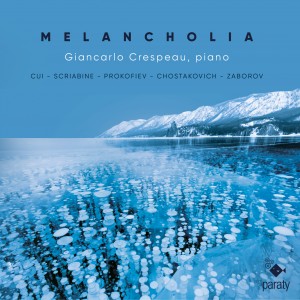
Unlike Western European music, which went through dramatic upheavals during the 20th century, Russian music progressed more steadily. There were, of course, both political and general aesthetic reasons for this. For a long time, Russian composers felt indebted to the Western heritage and were marked by major figures. Chopin and Liszt were thus dominant influences on Russian piano music, until well after their demise. After the 1920s, Soviet state authoritarianism turned composers away from any Western-style radical tendencies. Beyond these objective reasons, one can also find, in numerous Russian composers, a different relationship with time and beauty, as if for them it was less important to be novel than to deepen music’s expressive power – every innovation of language being subservient to the imperative of expressing the composer’s personality and innermost soul.
Although almost a century and a half separates Cesar Cui and Kirill Zaborov, it is noteworthy that, beyond any changes in musical language, there is a constant in Russian music – the perpetual search for synthesis between structured form and expressivity. This is the mark of a tradition that gives Russian music its unity and, in a sense, its eternal quality.

